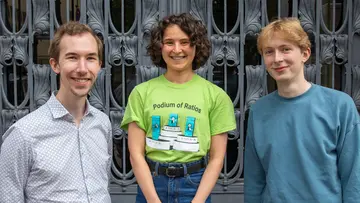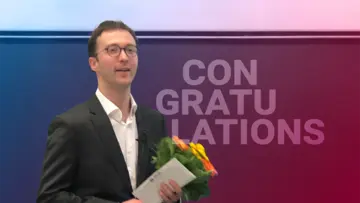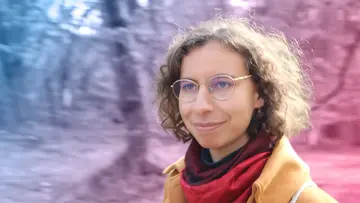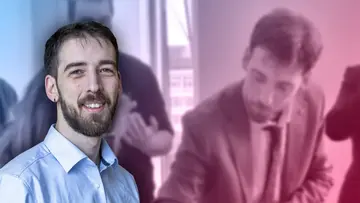
Social media is an increasingly important element of public discourse and has gained enormous influence in recent years. A research project coordinated by the Max Planck Institute for Mathematics in the Sciences explores the communication mechanisms in social media and their impact on political discourse and liberal democracy. The project, which was recently launched with a kick-off conference in Leipzig, is funded by the European Union with about three million euros over the next three years.
Public politics is currently in the midst of a structural transformation, which is also being perceived as a crisis of democracy. The meteoric rise of social media platforms is regarded as a major factor in this process, giving way to quite diverse and indeed contradictory developments. “Social media as well as digital information channels are bringing about profound changes in how individuals communicate, organize and express themselves. These new modes of communication have turned out to have ambivalent consequences. They have the potential to contribute to greater democracy, but also to erode it. Their extreme reach and universal accessibility by very heterogeneous groups with equally diverse goals harbor both tremendous opportunities and great risks. This is precisely where our project comes in,” explains the project coordinator of “Social Media for Democracy” Dr. Eckehard Olbrich. “While communication in social media expands the public space and thus renders it more responsive, these platforms also lead to new mechanisms of fragmentation and exclusion, including a possible loss of trust in traditional institutions.”
Eckehard Olbrich already headed the project “ODYCCEUS Opinion Dynamics and Cultural Conflict in European Space”, coordinated at the Max Planck Institute, which also investigated mechanisms of opinion formation and their impact on political and social processes and thus established the groundwork and provided important impulses for the current project. Drawing on comprehensive data analysis, the researchers want to contribute to the evidence of the impact of social media on society, especially with regard to political debates. Another focus of the project is to investigate and understand the main causal mechanisms underlying these effects. “Our goal is to achieve breakthroughs in our understanding of the social effects of social media as well as to develop tools and derive proposals for reshaping the platforms. Through our research we hope to contribute to tackling the pressing issues facing our society. An important aspect of our work is to respect the autonomy of users and to empower them as informed digital citizens,” concludes Eckehard Olbrich.
The project “Social Media for Democracy” is embedded in the EU research funding program HORIZON EUROPE. The European Union specifically calls for research projects on the structural development of democracy in Europe. The aim is to strengthen democratic processes and trust in governance by increasing citizens' participation in democratic life across all population groups and regional levels.
Project partners are the coordinating Max Planck Institute for Mathematics in the Sciences, the Universities of Leipzig and Potsdam, the Università Ca' Foscari Venice, the Universiteit van Amsterdam, the Vrije Universiteit Brussels, the University of Bristol, the Max Planck Institute for Human Development, the Karlsruhe Institute of Technology, and the Fondation Nationale des Sciences Politiques in France.
Scientific Contact
Editorial Contact
Discover More
-
www.some4dem.eu
Project website
-
cordis.europa.eu
Information about the project on the EU Cordis website







Social Media for More Democracy – Million-Euro Funding for Project to Study the Impact of Social Media on Society and Politics
Published Apr 25, 2023